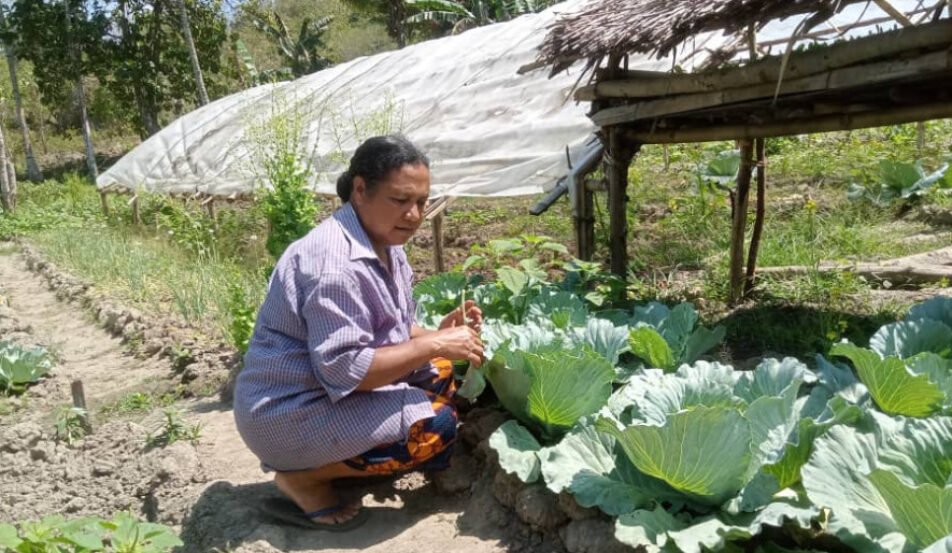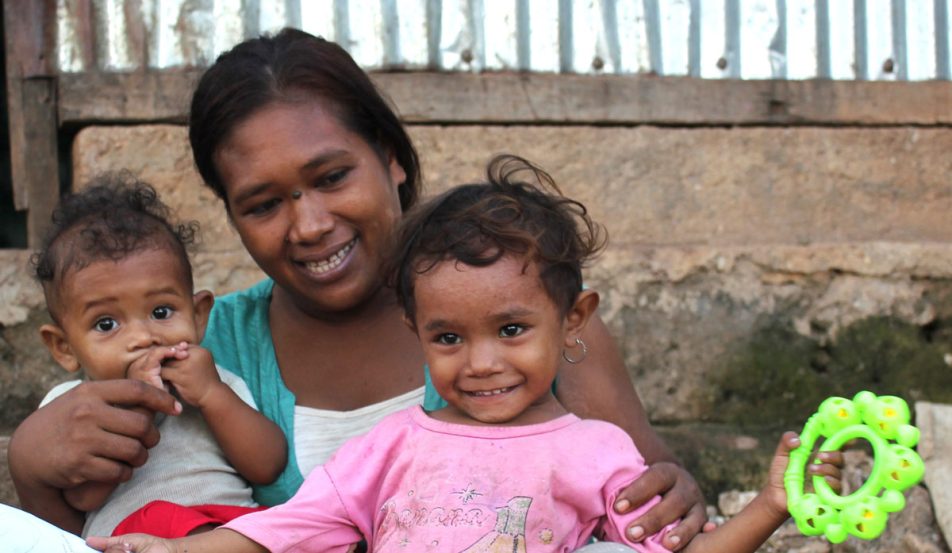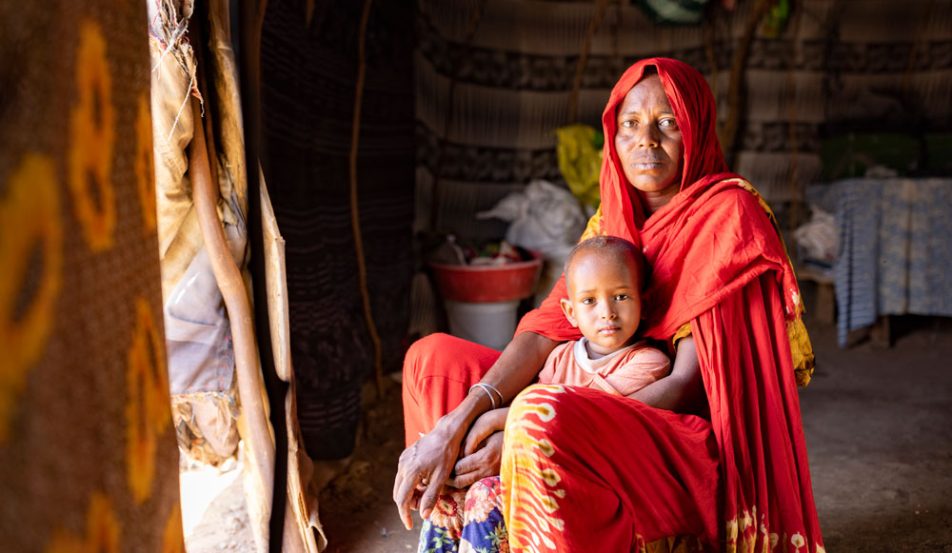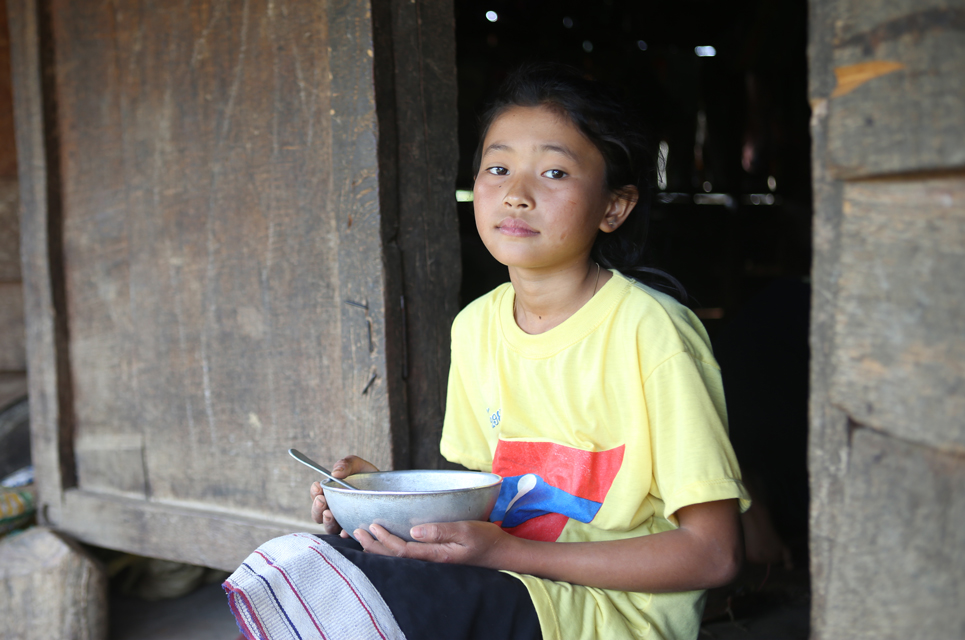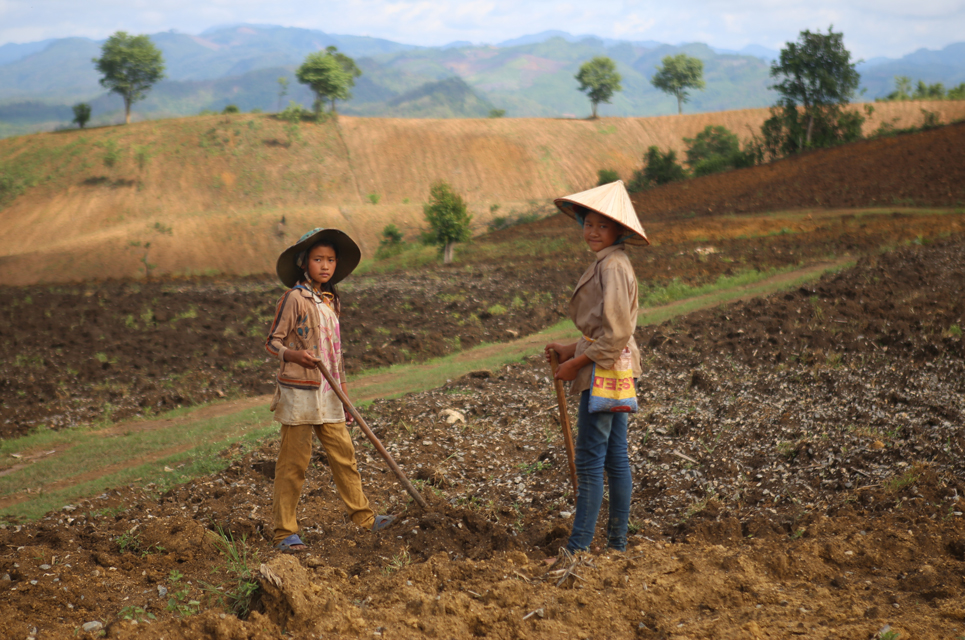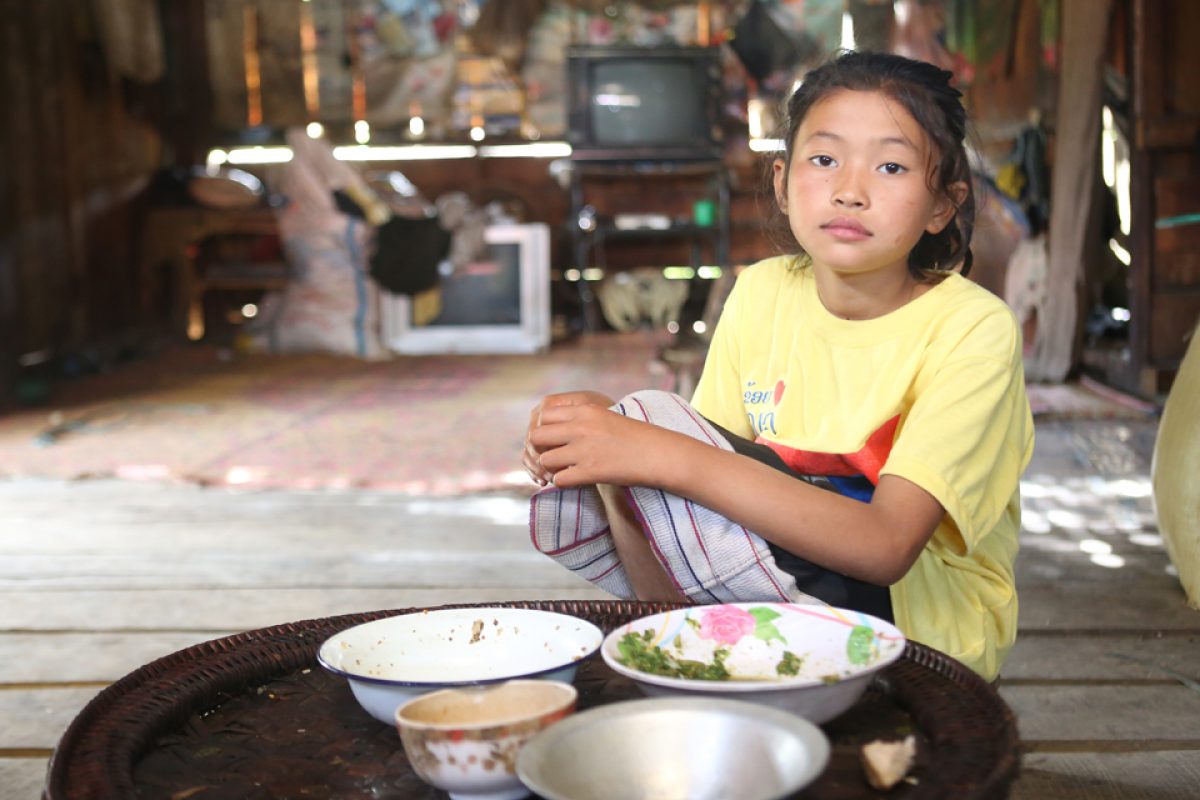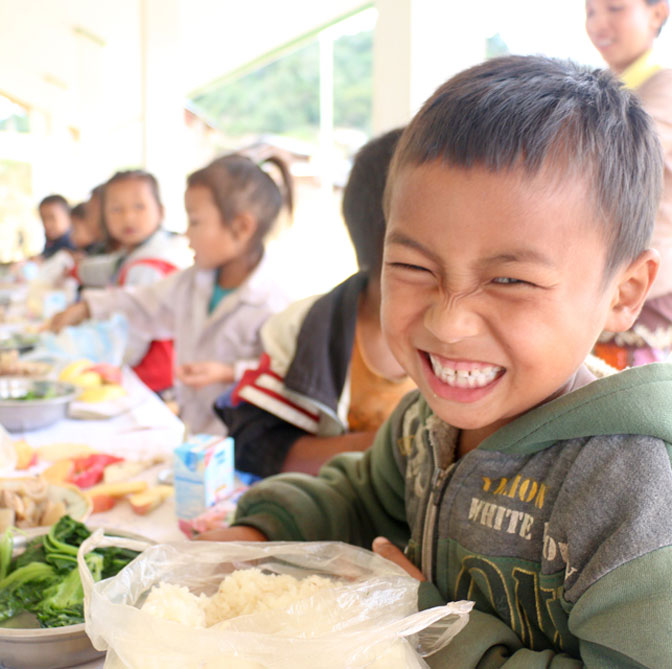At school, if she doesn’t have food, she spends her lunchtimes walking around the grounds inspecting trees for edible leaves.
“I like playing with my friends and having fun,” Khamsawei says. “I don’t like being hungry. I’m sick of being hungry.”
Hunger is a widespread problem in Laos. Despite the country’s potential for food production, only five percent of children eat an adequate diet.
Most families eat rice and a limited selection of vegetables every day. This lack of variety does not give children the nutrients they need to develop properly. It makes them vulnerable to diseases and more likely to fall behind in school.
Khamsawei’s older sister, Oudai, was forced to repeat Grade 3 because she was underweight and missed significant time at school because she was sick.
“At the time I was very thin, I was only 25kg because I did not have enough food to eat,” Oudai says.
“So I was sick a lot that year and I was absent from class and I could not get good marks like my friends.”
Khamsawei does not want to follow in her older sister’s footsteps, but she does not have a choice.
Thaimoua Yongvang, ChildFund Laos’ provincial area manager in the province where Khamsawei’s family lives, says knowledge about healthy diets is the main barrier in Laos.
“They have food but it’s still a problem because they do not know how to cook, they do not know how to provide good, productive food for their children,” he says.
“They are eating mostly vegetables and rice. There’s not really meat and not really a variety of vegetables.”
ChildFund Myanmar is providing seeds to families and running workshops in Khamsawei’s village to teach parents about which foods their children need and the best ways to prepare food. This project is supported by the Australian Government through the Australian NGO Cooperation Program (ANCP).
Local health staff in remote villages are receiving equipment to monitor the growth of children so they can identify and treat malnourished children.
Thaimoua believes these solutions can help lead the way to a healthier future in Laos.
“It is very important for children to have good health and good nutritious food because they will grow very fast and they will have a good life,” he says.
“They can go to school as they want, go for further education. Because they can go to school, they can go for higher education and they can live a good life.”



